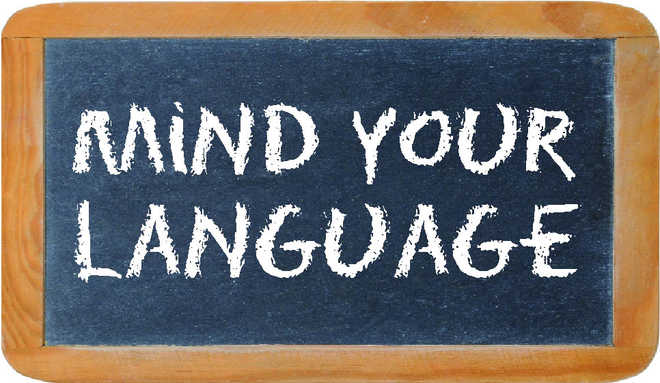
Ratna Raman
ONE narrative describing the use of language says: “In the beginning was the Word, and the Word was with God and the Word was God.” (Genesis). Subsequently, God named all the forms in the world. In another part of the world, yogis meditated constantly on the Om shabd adorned with the bindu. Recognising that the word delineated the boundaries of desire and liberation, the yogis began to revere it. The eventual evolution of words was charted by grammarians, linguists and word experts who constructed many clauses and wrote all manner of rules.
In 1755, A Dictionary of the English Language was published. Containing over 42,000 words, meanings were explained through literary quotations. Samuel Johnson’s single-handed effort over nine years paved the way for the dictionary to become a comprehensively researched compendium of alphabetically arranged words, containing meanings, phonetics, synonyms and other fine details appertaining to the English language and its usage.
Specialisations in innumerable disciplines became the order of the day as life became a continual discovery. More subjects were created, more processes and ideas were named and all these found their way into the dictionary, enabling it to expertly tell us less and less about more and more.
There is now an explosion of dictionaries in print and cyberspace. The printed word marked an extraordinary shift in the relationship between humans and words. The introduction of the printing press gradually reduced human ability to commit to memory lengthy pieces of poetry and verse. The access to printed material, hard copies, and now soft copies, has made humans dismissive of the ability to learn by rote.
Committing long passages to memory and subsequently reciting them is no longer a favoured practice. The diminishing interest in absorbing great ideas has been offset by an ongoing fascination for grasping new words. Take, for instance, the global focus on Spelling Bee Competitions. When the schooling process emphasised recitation and learning by rote skills, it also revealed great literature to impressionable minds.
Now, Spelling Bees torture young people into committing to memory the most obscure arrangements of letters to form words that will, in all likelihood, never be used again. Unless words are rooted in a context and add to a body of ideas, they cannot contribute qualitatively to the human condition. The world does not need people with extraordinary spelling abilities, dissociated from their everyday world. Brilliant phonetic skills by themselves are not indicators of greater humanity or creativity. It does not necessarily indicate developed emotional or intellectual understanding.
This brings us to the odd ‘emoji’ that recently made front page news. Out of the best and worst words coined every year, several ‘neo-logisms’ (new words) are taken on board. The two words added by the Oxford English Dictionary in 2015 speak volumes about the times we live in.
One of them, the ‘selfie’ describes the narcissistic clicking activity by which the privileged become omnipresent in digital pictures transporting fans into tears of rapture. Meanwhile, ordinary humans tug at their hair, vexed by the continuous self-display. Possibly, in such a context, the OED has introduced an emoticon into its archives. Will the replacement of phrases by emoticons return us to the ancient world of hieroglyphics (Egyptian pictorial script)?



























